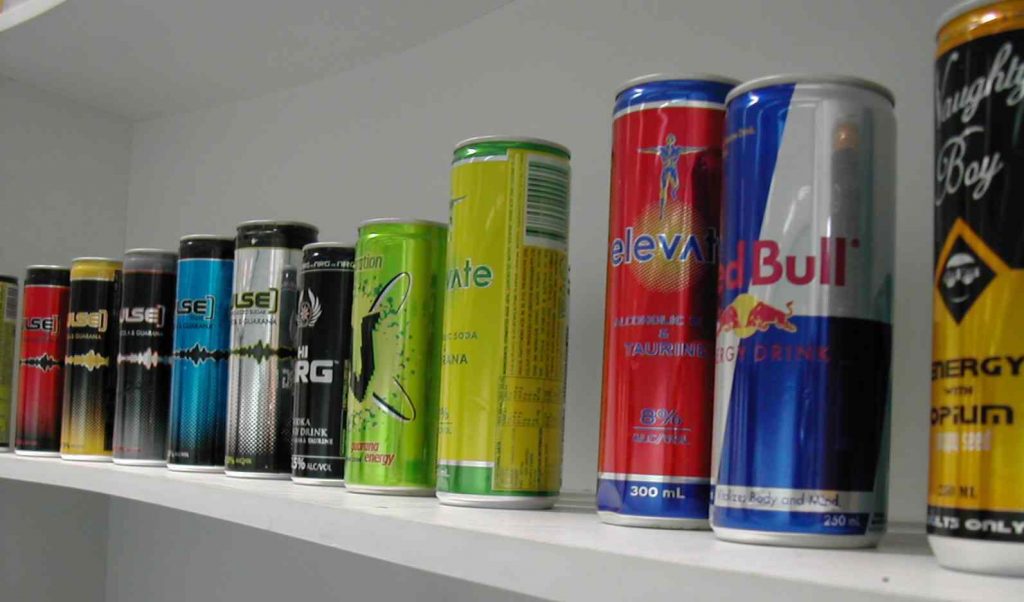A heart attack and cardiac arrest in a healthy 28 year old man recently has highlighted concerns about the consumption of ‘energy’ drinks. The 7–8 cans the young man consumed were thought to be a possible cause of his life-threatening event. (see reference 1 below)
Aggressive marketing has led to a recent increase in the use of energy drinks, especially in young people, to increase stamina, performance and alertness.

They provide a ‘kick’ or stimulus from caffeine — a 250 mL can contains on average about 80mg of caffeine, about as much as a strong cup of coffee. Caffeine can increase alertness in some people, but there is very little evidence for an effect on performance and energy levels.
Caffeine is an addictive drug which can cause disturbed sleep, raised blood pressure, anxiety, headache and a fast and irregular pulse.
Energy drinks also contain large amounts of sugar, more than 13 teaspoons per 500 mL in some cases, which can contribute to obesity and tooth decay.
Recommendations
- Because of the health risks and unproven benefits, nutritionists do not recommend energy drinks, although 2–3 cans per day are unlikely to be harmful in most people. However, some people are very sensitive to even small amounts.
- Energy drinks should be avoided in children as they can cause anxiety, insomnia and bedwetting.
- Pregnant women also should not drink them as they can lead to miscarriage and low birthweight babies.
- People with heart disease should take special care to avoid high doses of caffeine from all sources. However, some researchers believe that even one can a day can increase the risk of heart attack or stroke, even in young people.
- Experts advise not mixing energy drinks with alcohol as this is especially dangerous.
- Energy drinks are not ‘sports’ drinks and should not be used to keep up hydration while exercising. In fact, they can actually cause dehydration.
Further information
1. Medical Journal of Australia case report
2. Nutrition Australia Q&A
3. DrugInfo Clearinghouse fact sheet
Source: Health Update, 29 January 2009
Disclaimer:
Please note this information was correct at time of publication.
For up to date information, speak to your doctor.


